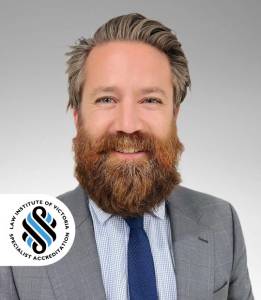There are some circumstances where a person or organisation owes you or a family member a special duty of care to avoid injury. Examples of relationships where a such a duty of care is owed include that of:
- a school to a student,
- an aged care provider to its residents,
- immigration detention operators to detained asylum seekers,
- hospital staff to patients, and
- prison operators to prisoners.
What should I do after suffering an injury on a Council Road or Footpath
It is important that you do following at the time or shortly after you have been injured
- focus on your injury
Seek first aid, if necessary: even a minor injury can become a lifelong condition without proper initial medical treatment.
Request for an ambulance to be called or attend an emergency department, if necessary.
At this stage, it is best to forget about any potential compensation claim you may have as a result your incident and concentrate on your health.
- report your incident
You must tell the person or organisation caring for you that you are injured, when the incident occurred, and what caused your injury.
Request that an “incident report” be completed and request a copy for your records.
The question of who is to blame for injury is best avoided at this stage. Even if you blame yourself, or if the person you report the incident to blames you for the incident, this does not mean that you do not have a claim for compensation.
- take photos and video of the area of your incident and of what caused your incident
Contemporaneous evidence of where the incident happened, the circumstances that led to your injury and what injuries you suffered provide invaluable assistance to the preparation of a public liability compensation claim. You can never have too much evidence, and if ever in doubt it is better to take a photo or make a record of it.
– Example
If you or a loved one were injured due to a fall in an aged care residence, photos of where the fall occurred or what caused the fall are important. If you or your loved one were known to be at an increased falls risk, keeping or obtaining any care plans that detail what level of supervision is required will help to demonstrate whether, at the time of the fall, you or your loved one should have been supervised by a nurse or aged care support worker.
- make your own record of the circumstances of your incident as well as of all your symptoms
It is important that you keep an up-to-date list of your all your symptoms, whether on paper, computer, or your smartphone.
Treatment providers do not often record all your symptoms and complaints and often concentrate on what is serious at the time. The passage of time can make what seemed like a minor injury in the initial post incident period a long-term, debilitating condition. If there is no record of such injury or associated symptoms in your treating clinical notes, it will be difficult to attribute this injury to the incident. In the alternative, you can record video footage of you discussing your symptoms.
- go to your general practitioner or hospital
You may have already been to see your general practitioner or received hospital treatment, however, you need to listen to your body and attend on your general practitioner or hospital as many times as you think fit. This is important, as if, for example, you only sought medical treatment once, the defendant or insurer to your claim will argue that you do not suffer from any ongoing problems or disabilities, because if you did you would have sought frequent medical treatment.
When will a care or supervision provider be liable in negligence?
Particularly in circumstances where a person is reliant on the exercise of skill and care of another person or organisation to keep them safe from injury, the standard of care required by the provider of that service will depend on the nature of the relationship and what standards are generally required of that service provider.
For example, a school must take reasonable steps to ensure the safety of its students. This will include having a system in place to supervise children in the school yard, a system to investigate and respond to complaints of school bullying and systems to ensure the students are safe from injury from members of the public. If the systems in place are considered to fall short of that expected of such an organisation (usually based on expert evidence about what systems are usually used in similar relationships) and that failure has led to injury, then the service provider will be liable in negligence for the injury suffered.
– Example
A regular example of such a claim is an injury suffered by an elderly resident of a nursing home, particularly where the residents is a known to be a high risk of falling.
In such a setting, where the resident is reliant on the service provider to help them walk, toilet, shower and move between rooms of the aged care facility, a plan must be in place to ensure that the resident is cared for to an extent that the risk of them walking unsupervised is minimised. In some cases, for example, this can include pressure sensitive mats being placed on side of the resident’s bed so that staff are alerted to the resident leaving the bed so that they can assist.
If the resident is left to walk unassisted and falls suffering injury either due to a poor system of supervision and care being put in place or poor compliance with the supervision plan, the service provider may be found to have negligently allowed the injury to occur.
Successfully bringing a claim against a care and supervision provider is difficult. With our expertise we can advise you of your prospects of success and obtain the best evidence to support a successful claim.
What are examples of circumstances for which I can claim compensation?
Examples of preventable causes of incidents on Council property include:
- falls by elderly residents in aged care accommodation,
- physical injuries suffered by a student at school when not properly supervised,
- prisoners and detained asylum seekers assaulted by a perpetrator known to be violent and who is not separated or supervised to avoid them attacking others,
- hospital patients with increased risk of falls due to their injury, illness or surgery not being supervised,
- and many others.
Contact us today, and start with a free consultation by “Make a Booking” to receive our preliminary expert advice.


